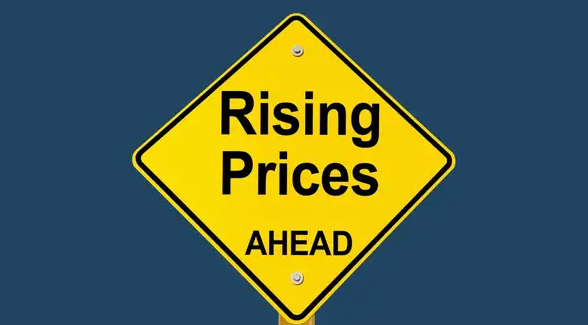
“Although a free market economic system is sometimes called a profit system, it is in reality a profit-and-loss system — and the losses are equally important for the efficiency of the economy, because losses tell producers what to stop doing — what to stop producing, where to stop putting resources, what to stop investing in.”
— Thomas Sowell
IN his remarks at the recent meeting of the Interagency Group on Insular Areas in Washington, D.C., the governor said, among other things: “We need help improving air service within and to the Marianas. A 30-minute economy class trip between Saipan and Guam should not cost $600.”
Sure. Come to think of it, everything else we need to buy regularly should cost less, too. But they rarely do.
Many of us also assume that we’re underpaid for the services and/or goods that we provide. However, this assertion can be tested easily. If, as an employee, we believe that despite our staggering talents and sterling track record we’re not paid enough then there should be other employers willing to hire us and pay us more. Otherwise, we’re probably legends in our own minds only.
As for the prices of goods or services that we need, if we think they’re too “high” then we ought to try other available options. (I know a person who “solved” his problem with “high” gas prices by selling his car and buying a mountain bike. I know another person who no longer complains about “high” power rates after he stopped using an A/C unit and got himself an electric fan.)
But what if options are not available? What does that tell us? Market-oriented economists will say that when demand is low, supply will also be low.
In the case of the number of airlines that serve the CNMI route, some of us may remember that it was so much better — the number of direct flights, their frequency and schedules, not to mention airfare — back in the day when many people — tens of thousands of them — were still flying to and from the Commonwealth. Today, the CNMI population is shrinking. Tourist arrivals have yet to recover. The economy is still down. The number of flight services has declined. And usually, when there is less of a product or service its price will tend to rise.
Right now, is there enough demand for more Saipan-Guam flights? If there is, then other airlines should be knocking on CPA’s doors already.
Many economic concepts, alas, are counterintuitive. They go against our expectations. Hence, most of us prefer to believe that “greed” is the main if not the only reason for “high prices.”
But consider this year’s Super Bowl ticket prices. Some willingly paid $6,500 for a ticket. On Super Bowl Sunday, the lowest priced ticket cost $8,000. Many were glad to get those tickets. Others forked $37,000 for a last-minute ticket. A VIP suite at Allegiant Stadium where Super Bowl LVIII took place cost $2.5 million. The suite could accommodate up to 20 people — or $125,000 a head. Happy customers, all of them.
And all this to watch a football game that can also be seen on TVs, laptops or smartphones in the comfort of one’s home for, more or less, free.
Incidentally, this year, businesses paid $7 million for a 30-second Super Bowl ad. What an advertiser spent in 30 seconds on Super Bowl Sunday was more than the 12-month budget of the CNMI Department of Public Safety ($6.5 million in FY 2024).
“Outrageous” you say?
Well, what about the “high salaries” of superstar athletes, actors and singers compared to the wage rates of “essential professionals” such as nurses, teachers or police officers?
Market-oriented economists call it the water-diamond paradox: why is water, which we need to survive, is priced so inexpensively in comparison to diamonds? Here’s how Ninos P. Malek, an economics professor in California, explained it: Since the total utility of water was significantly greater than that of diamonds, the price of water should logically be higher, right? Wrong.
Price “is related to marginal utility, not total utility. Utility is just another term for benefit and ‘marginal’ means the one additional. In most situations, the marginal utility of diamonds is higher. In other words, usually, people are willing to spend thousands of dollars for a diamond ring but not for a bottle of water even though water is essential for them to live.”
To quote another economist, Kerry McDonald, value is subjective.
“What is more useful: a gallon of water or a diamond?” she asked. “Well, it depends. If you’re stranded in the desert, a gallon of water means the difference between life and death by thirst, while a diamond may just be pretty to look at. But then if you stumble upon an oasis with a spring, that changes things. The total usefulness of water is still high, because you still depend on it for survival. But the usefulness of any additional unit of water (the ‘marginal utility’) is much lower, maybe even negligible. In that case the diamond’s bling might matter more.”
In the CNMI, most of us compare the prices here with those in other places that are vastly different — geographically, demographically and economically, among other things — from the Commonwealth. We gush about the high wages and lower prices in larger jurisdictions with bigger populations and more prosperous economies without acknowledging the connection between these factors.
As for the governor’s complaint about the $600 Saipan-Guam airfare — it is expensive. But in case of an emergency — medical, for example — some may consider it heaven-sent that there is a flight service for the route, and the cost is way less than a Super Bowl ticket.
Send feedback to editor@mvariety.com











